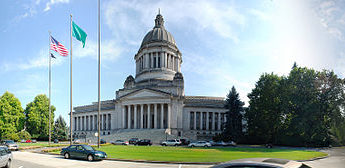
By Liz Carey, The Daily Yonder
April 9, 2025
As rural pharmacies are striving to provide more services to their communities, East Tennessee State University is working to get more pharmacists into rural communities.
For the past 20 years, ETSU’s Gatton College of Pharmacy has educated pharmacists in northeastern Tennessee. Recently, the pharmacy program received $2.5 million in funding from the Tennessee General Assembly, the first state assistance for the program since it was founded in 2005. The funding allowed the school to lower tuition for in-state and out-of-state students and offer additional scholarships. The funding also allows the school to further its primary mission — to improve lives in rural America.
Rural pharmacies are becoming a healthcare lifeline as more than a third of all rural hospitals are facing closure, according to leaders in ETSU’s pharmacy program.
“Pharmacies are absolutely important in rural communities,” Ralph Lugo, associate dean and a professor in ETSU’s Department of Pharmacy Practice, said in an interview with the Daily Yonder.
“Ninety percent of the U.S. population is within five miles of a pharmacy. You cannot say that about all aspects of healthcare … there’s a significant shortage of primary care providers of all different types, and pharmacists play a key role in meeting the needs of the patients that are seeking healthcare.”
Located in south central Appalachia, ETSU is in the middle of a healthcare desert, according to the U.S. Department of Health and Human Services Health Resources and Services Administration.
As hospitals in rural communities close, pharmacists are changing their workflow and business models, Lugo said, to focus on providing more services. ETSU is part of that change, he said.
“We’re training pharmacies and pharmacists in the region to change a little bit of their workflow and their business model, to focus more on chronic diseases care and management, and to move away a little bit from the product and more toward the patient,” he said. “That’s a national initiative called ‘Flip the Pharmacy’ that we have been involved in over the past five years.”
Sponsored by Community Pharmacy Foundation, an organization focused on assisting community pharmacy practitioners, the Flip the Pharmacy program aims to move pharmacies away from prescription-level care processes and into patient-level care processes, the organization said.
The change in focus for rural pharmacies comes as many pharmacies, like many rural hospitals, are struggling to stay open. Many are independent small businesses, according to Jeffry Gray, associate professor of pharmacy at ETSU, and the strain of changing reimbursement systems, increased costs, and workforce challenges are adding to the difficulty of staying afloat.
“Pharmacies in general are under a great deal of assault — and that’s both financial and for the workforce, as well as other areas,” Gray said. “Rural pharmacies are carrying the burden of that much more. Pharmacies in rural environments … are escalating their non-dispensing services in ways they have not before. We often refer to that as transforming the pharmacy from what they used to be.”
Gray said pharmacists now help patients with providing essential services from testing and treating illnesses such as the flu, to providing flu and Covid-19 vaccines, to helping patients manage their chronic conditions.
But none of that is possible if there aren’t pharmacists in rural areas, they both said. To get more pharmacists into rural communities, the school looks first to rural communities to recruit students. Most of the school’s recruitment comes from within a 150-mile radius of Johnson City, Tennessee, Lugo said.
“We find that actually putting students back into the region, where pharmacists and pharmacies are most needed, is to recruit them from this region,” he said. “Our students that are from this region didn’t want to leave this region, and so it really spoke to the necessity of having a college of pharmacy placed in northeast Tennessee that serves the needs of the people in this region.”
Steve Ellis, ETSU’s assistant dean of student affairs, said that a third of its students come from rural ZIP codes. Coming from rural communities is a good indicator that they will go back to a rural community, he said.
“Certainly, our students go places nationally, but by and large, we really want to serve this region and get healthcare providers into those rural areas. We really firmly believe that starts with attracting people from those areas because that’s home for them. And they have an affinity built in to wanting to serve their community, their families, and the places and people that they know and are comfortable with.”
One Kentucky family exemplifies that.
In 2007, J.P. Ball from Somerset, Kentucky, graduated as a member of the school’s inaugural Class of 2010 and received his white coat. Upon graduation, he joined his family’s independent pharmacy, Burgess Drugs, in Sterns, Kentucky. He saw then, and sees now, his position as more than just a druggist.
“Rural community pharmacists do fill Rxs, but most folks in small rural communities trust the pharmacist’s advice and professional opinion as much if not more than any other health-care practitioner in those rural communities,” Dr. Ball said in an email interview with the Daily Yonder.
“Rural community pharmacists are respected and appreciated so much that patients will adhere to what we say even when they’re skeptical about a new medication from their provider. We find ourselves reinforcing or backing up why they need that medication and why their doctor or the nurse practitioner started a new med, or added a new med, or changed meds.”
Last year, Ball watched as his son Kyhran walked across the stage at ETSU to receive his white coat, ETSU’s first legacy student pharmacist. Kyhran said he plans to focus on improving healthcare in rural and underserved communities as part of his career after he graduates, and to return to his home in Kentucky to work at the same pharmacy as his dad. The pharmacy has three locations now in Monticello, Whitley City, and Sterns, with plans to open a fourth near Somerset.
“Growing up in Whitley, I remember seeing the community interactions my dad had with people,” Kyhran Ball told the Daily Yonder. “Dad knows everybody and everybody knows him, and he genuinely cares for the people in his community. I’ve really looked up to him and wanted to continue caring for our communities.”
Being a community pharmacist means doing more than just selling prescriptions, he said — it’s an essential element of healthcare for those with limited access to doctors.
“Some people say a pharmacist is a more accessible healthcare provider,” Kyhran Ball said. “People come in and ask my dad for help, whether it’s for allergies or the flu or whatever, and he will treat them and send them on their way. … Calling a doctor can take so much more time. Sometimes, they’re booked up for weeks. But with a pharmacist, you can usually get in touch with them the same day.”
Ellis said helping other students find that rural connection is also key in helping pharmacies be successful in the future.
“In our rotation programs, we do have a lot of sites that are rural, based in southeast Kentucky, southwest Virginia, western North Carolina, certainly northeast Tennessee, so students are able to get exposure and see a lot of things that, quite honestly, are sort of ‘Aha!’ moments for them,” Ellis said.
“It’s eye-opening, because it’s not unusual for a student to enter pharmacy school with limited knowledge, based on a local drugstore dispensing medicine. But now, they’re really able to see a much broader role for pharmacists and pharmacies in all communities, but in particular within rural and underserved areas.”
Kyhran Ball said many of his classmates are dedicated to providing those services in small towns. While he wasn’t always keen to come back to his hometown, now that he’s seen a rural pharmacist’s impact, he’s up for the challenge.
“I know there are a lot of people in my class who are interested in rural and underserved communities,” he said. “At one point, I wanted to go to Nashville, but as I got older, I realized that wasn’t for me. When I did my 120 hours of pharmacist shadowing, I really got a sense of what a rural pharmacist does and how much they help people.”
This article first appeared on The Daily Yonder and is republished here under a Creative Commons Attribution-NoDerivatives 4.0 International License.![]()


